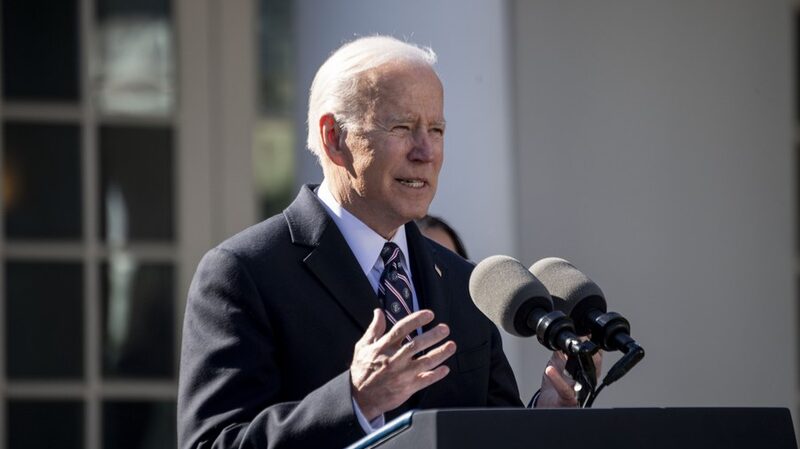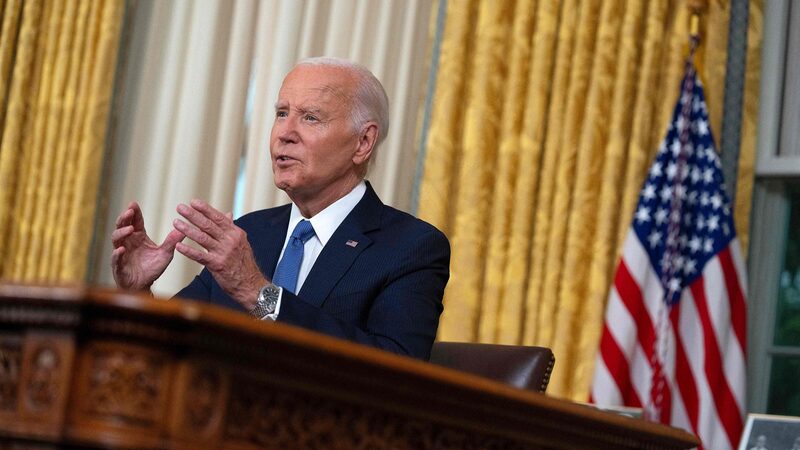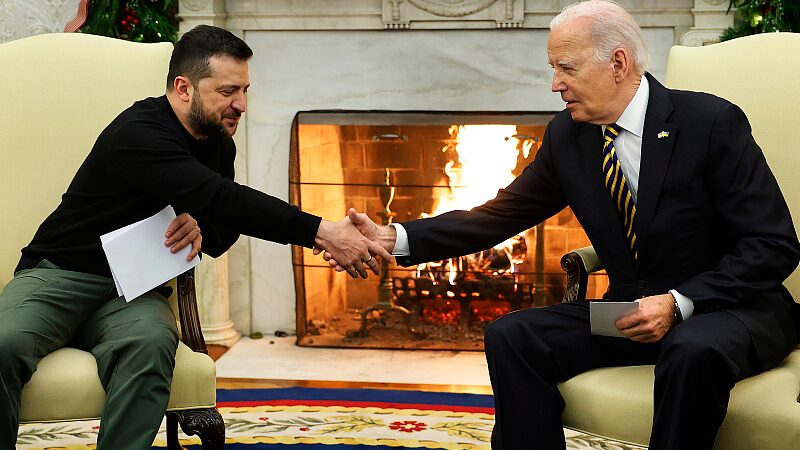President Joe Biden’s push for a $105 billion military aid package for Israel and Ukraine has ignited fierce debate, with critics accusing him of weaving a web of contradictions to rally support. 🌐 In a high-stakes speech from the White House, Biden framed the funding as critical to countering global threats, calling this moment an 'inflection point in history.' But analysts argue his claims clash with reality.
The Aid Pitch & Political Strategy
Biden urged Congress to approve the aid by linking support for Israel and Ukraine, hoping to leverage bipartisan sympathy for Israel to overcome resistance to funding Kyiv's war effort. 💸 Yet experts question the logic: "Why risk a wider Middle East war while claiming to prioritize American safety?" asked Radhika Desai, a political studies professor, in a recent CGTN op-ed.
Truths vs. Lies
While Biden emphasized protecting U.S. hostages abroad, his unwavering support for Israel has alienated key Arab leaders. Jordan’s King Abdullah canceled a planned summit with Biden this month, undermining efforts to free hostages in Gaza. Critics say Biden’s claim of backing Palestinian 'self-determination' rings hollow after the U.S. vetoed a UN resolution for Gaza humanitarian pauses. 🕊️
Global Repercussions
The White House’s pro-Israel stance has deepened divisions, with Desai calling U.S. policy "glaringly biased." Meanwhile, Biden’s vow to avoid direct conflict with Russia contrasts with funneling arms to Ukraine—a strategy some liken to fighting Moscow "to the last Ukrainian." ⚖️ As tensions escalate, the world watches: Will this aid package stabilize crises or fuel them further?
Reference(s):
cgtn.com





